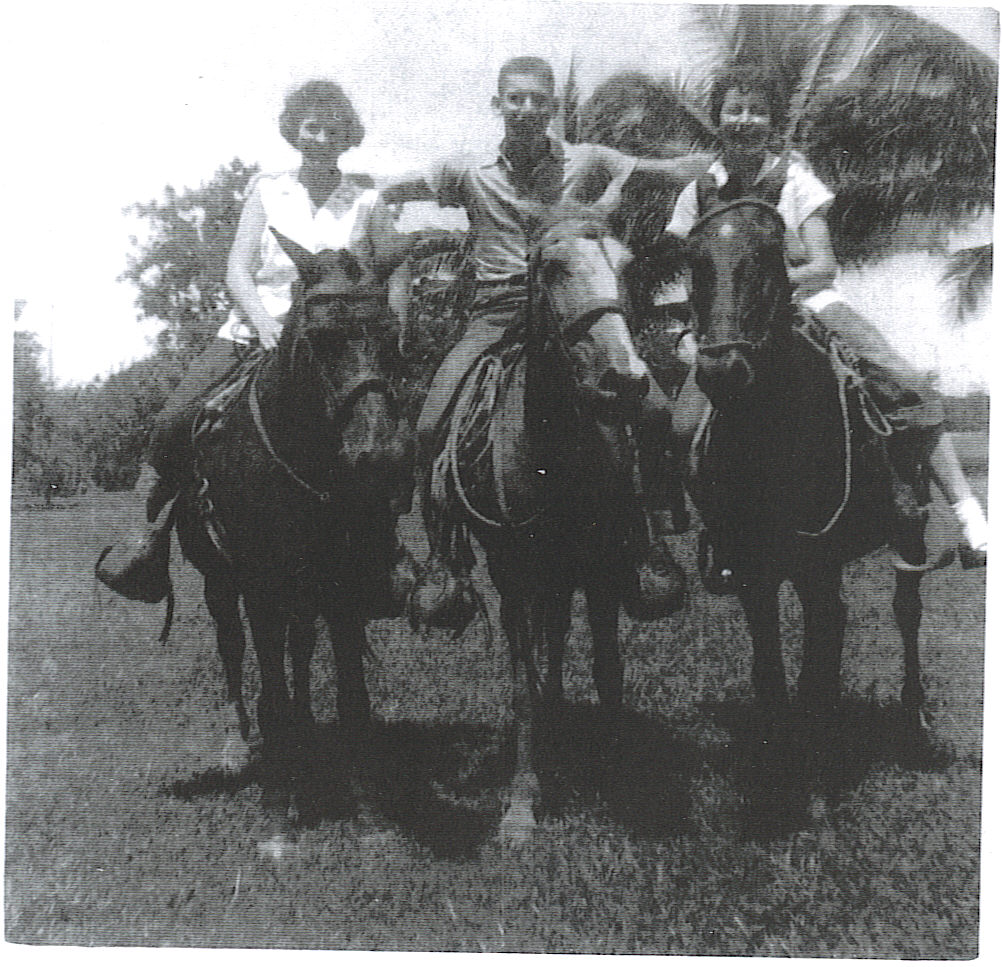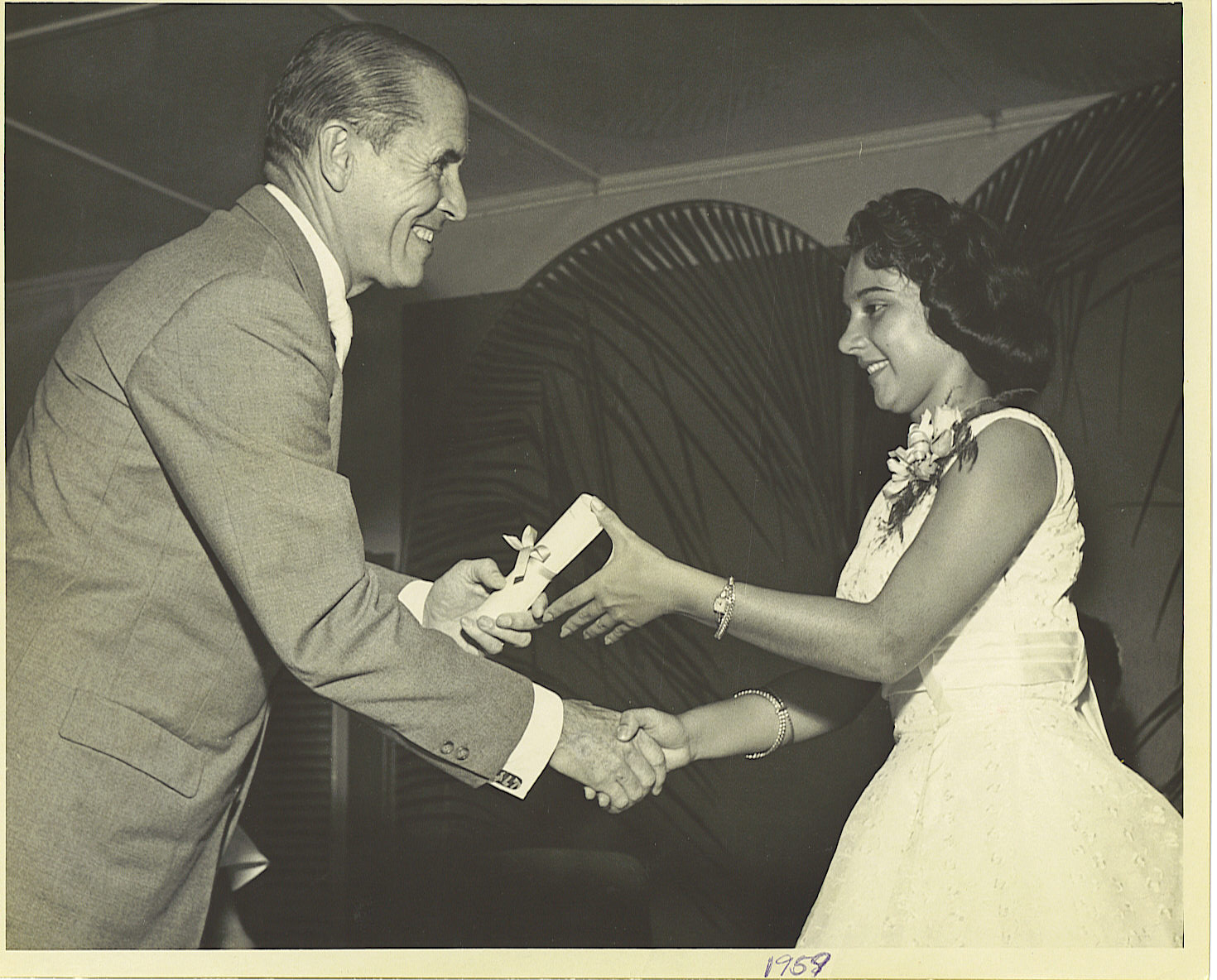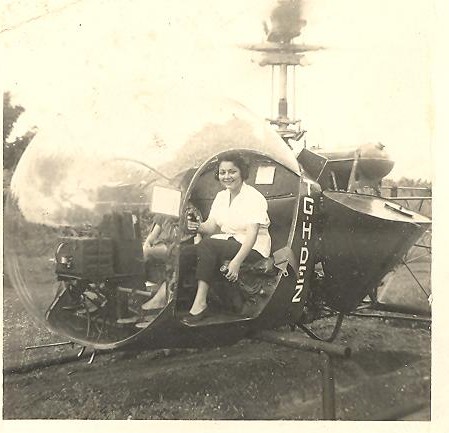In which the scion of a rich Guatemalan family falls into disgrace and is banished to another country – but turns her misfortune into victory
March 1968
Vilma was vacuuming. Staring at the carpet of the tiny 400 square foot, two-bedroom apartment in central New Jersey, under the roar of the vacuum, she began to hum her favorite song, which her mother used to sing to her when she was a child:
Arrorró mi niño, arrorró mi sol,
arrorró pedazo de mi corazón.
Lost in the familiar tune, and beginning to sway her hips in a peaceful trance, her quiet, nostalgic hum was broken by two arms waving in front of her face.
“Vaya al otro cuarto con eso! Mi novela!”
Vilma’s aunt had reluctantly gotten up from her favorite spot on the couch to tell her that the vacuum noise was disrupting her telenovela.
Tia Ofelia and Tio Ramos had been Vilma’s guardians, hosts and employers for the previous seven months, since she’d arrived in September. Long gone were Vilma’s days in paradise with her friends and family in their secluded compound in Tiquisate, Guatemala. The crowded apartment in the bustling college town of New Brunswick, New Jersey was now the place she called both workplace and home.
“Si, tia,” Vilma responded obediently, as she headed into the room to finish up her chores.
Vilma sat on the bed facing the vanity mirror, with a blank stare on her face. Rubbing her seven-months pregnant belly, she began humming the lullaby to her unborn baby, right where she left off in the living room.
Este niño lindo se quiere dormir el pícaro sueño no quiere veni….
She closed her eyes tight, as if reopening them would wake her from some kind of bad dream. Flashes of memories from her paradise in southwest Guatemala ran through her mind. It was hard for her to believe how she got to where she was, earning her keep as a maid for her aunt and uncle in New Jersey. She couldn’t help but feel as if her life was the kind of telenovela her aunt might watch – filled with irony and drama.
Once upon her telenovela, before showing up unannounced and pregnant at the doorstep of her aunt and uncle’s apartment building, Vilma had live-in maids who tended to her and her family. Her father, Adalberto Cardona, worked for the Guatemalan division of The United Fruit Company in the Office of Agriculture. It was there that a plantation was built, growing fruits and vegetables, but most importantly, where Chiquita bananas were exported from. Her father was one of the only native Guatemalans working for the company, as a majority were Europeans who had settled there when the company marked its territory in the early 1900s. She lived with her three brothers and parents in the gated compound on a 100-acre golf course provided for employees and their families. They enjoyed company benefits and amenities, including an Olympic-sized community pool, free education with American teachers, and a furnished home that came complete with a gardener, two maids, and a car.
Ay, one day I want that for you, mi bebe, Vilma sang to her belly. She looked back up at her mirror, tears welling up in her eyes, and a pit in her stomach from homesickness. Her gaze shifted over to an old picture of her high school graduation day. Taking the photo off the mirror, she held it up to her once-jubilant self, to compare it with her current appearance.
 An American Dream
An American Dream
She remembers it as if it were yesterday: New Orleans, Louisiana, five years before, in 1963. It was the day after graduation from Annunciation High School, the all-girls boarding school that had served as a home abroad for Vilma and her friends. The “fab five,” as they called themselves, were gathering the last of their things in preparation for their return home to Tiquisate. Susie, Sylvia, Tiki and Ana Maria were Vilma’s best friends – and Vilma was the leader of the pack. It had been this way for as long as they could remember, beginning with their school days in kindergarten in the compound. And just as they had all journeyed over to the United States aboard the Great White Fleet as best friends, they were returning home together, taking the accomplishments of their high school careers.
They reminisced over their memories of the past four years, good and bad.
“I can’t believe this is it!” Tiki exclaimed, her eyes tearing up while she stood in the doorway of Vilma and Susie’s empty dorm.
“Ay, Tiki, what are you crying for? This was the hardest four years of our lives!” Ana Maria said. “If there’s one thing I won’t miss, it’s getting punished by the nuns.”
The ladies burst into laughter, as Ana Maria did her best impression of Sister Maureen’s evil scorn.
“Okay, but you have to admit, sneaking out right under their noses made for some good stories! Remember Mardi Gras?” Sylvia reminded them.
Vilma lay on her twin-sized cot for the last time, staring at every crack in the ceiling.
“Four years gone just like that,” she said softly.
She was overwhelmed with bittersweet feeling. She could see there was a whole life ahead, beginning when she returned home to Guatemala. However, with life back at home being just shy of paradise, it seemed silly not to be ecstatic over reuniting with her family and friends. It was the prospect of what awaited her there that left her indifferent.
For women in Guatemala in the 1960s, college wasn’t even considered an option. Any further education after high school meant secretarial school, and Vilma’s job as a secretary in the Agency For International Development was already locked in: this is what her father had planned out for her future. Beyond that, the hunt for a husband would begin upon her arrival: the goal was to marry young, and marry rich.
These thoughts flooded her mind, but Vilma refused to sink. Her dreams and aspirations went far beyond those planned for her at home. She had gotten a glimpse of American culture and opportunity, and a newfound dream and ambition had formed. Living on the same 100-acre compound for the rest of her life just wouldn’t cut it, she now knew. Her years in New Orleans had been a mere taste of the world, and she knew she would return one day, if only for visits. She closed the door to her dorm room, feeling as if she were saying goodbye to another home she’d discovered.
Her manner of return, however, was unexpected. A few years later, she announced her pregnancy to her parents, and they promptly threw her out of the house. They handed her $300, and ordered her to live with her aunt in the United States, until the child was born.

A Niece and a Maid
Prometo que voy a regresar, Vilma recalled. Prometo que–
“Vilma!” Tia Ofelia screamed. Vilma jumped up from the bed and hurried to the living room.
“Si, tia?” she asked.
“Tenemos hambre. Quiero flautas para cenar,” Tía Ofelia demanded from the couch, her eyes still glued to her novellas.
“Si, tia,” Vilma complied.
She went straight to the kitchen freezer, to defrost the chicken and tortillas. She couldn’t help but chuckle at her progress in the kitchen. Just seven months ago, boiling water was a challenging task. One windfall was the supply of cooking magazines stocked in the bathroom for decoration. She spent her free time reading recipes, then experimenting with different flavors and spices. Cooking quickly became Vilma’s hobby, then her passion. She’d learn to use adversity to create opportunity.
She planned to teach her child to cook in the traditional Spanish style. Everything seemed to remind her of Guatemala, and the aroma of spices and taste of comfort helped her escape back home.
My babies will know how to cook, she thought. I want them to be raised just as I was, in paradise.

A Defiant Return
And after giving birth to a healthy baby girl in May 1968, she was determined to raise her child in her hometown, surrounded by her native culture and community.
Vilma and her daughter returned to Tiquisate, and Vilma began working for the Agency For International Development. Her parents cared for her daughter, while she worked all day. But sickness threw a wrench into paradise, when Vilma’s father grew ill. After traveling back and forth from Guatemala to Boston for extensive treatments and surgeries, Adalberto Cardona eventually fell victim to his lung cancer, dying two years after Vilma’s return.
Vilma wondered: should she stay in Guatemala during a period of increasing economic decline, or should she follow her older brothers’ footsteps, in going to the United States, with aspirations of creating a life with more opportunity for personal growth? Vilma knew this decision would also affect her daughter and their relationship. The reality of moving to the United States to establish herself by working full time, while also being a full time single mother, was unlikely to be best for either of them.
So she soon found herself back in the same college town where she lived with her tia and tio in New Jersey, except this time without her daughter, or the need to stay at their home as a maid. Her toddler and mother stayed behind in Guatemala, while Vilma looked for work and a home.
In 1970, Vilma applied for a job as a custodian at Rutgers University. But upon her interview, her fluency in English and high school diploma from a prestigious private school suggested that she was overqualified. Her employer noted this, and after convincing her to take a secretarial position in the new Department of Puerto Rican Studies at Livingston College, she accepted a full time position, which would support her life in her new home. Soon her daughter, Glenda, and her mother, Zoila, joined her, and began adjusting to what would become their new permanent home in New Brunswick.
Content with her job and her American-Guatemalan lifestyle, Vilma seemingly had it all. It wasn’t until 1974, when she met Julio, that she saw a part of life she’d been missing. Although they met in the States, Vilma and Julio shared similar stories about growing up in Guatemala, and moving to America. They married, and their love gave blossom to a daughter, Vanessa. Luckily for Vilma, her “fab five” friends had all returned to America, too, to continue their educations and settle down on the East coast. Having family friends from childhood near kept Vilma’s roots alive, and close to her heart.
Ever After
Vilma felt as though her free-spirited lust for life and inner strength had pulled her through, to a happy telenovela ending. Now, 40 years on, she has retired from Rutgers, after 33 years of service. She’s still happily married, and her five grandchildren from her two daughters all live in central New Jersey. She continues to visit Tiquisate, where she built a home where she and her family could stay when they visited. As for her friends, who seemed like family in that gated compound, they hold reunions every three years, to celebrate their lives, and the place where their American journeys began.
And although she’ll always remember her past life in Guatemala as a paradise, Vilma has found her true paradise in watching her children and grandchildren grow up to brighter American futures. With that same fire and free-spirited ambition she had as a young woman, I doubt she’ll ever slow her adventure of a life down.



